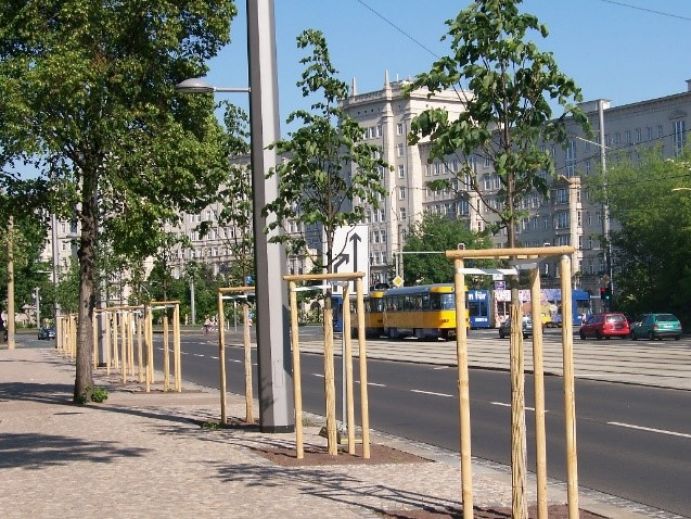CoSynHealth - Conflicts and synergies between scenarios for CO2-neutral and healthy cities
The conflicts and synergies between climate adaptation and climate protection measures have not been considered enough in research on urban health. The junior research group CoSynHealth is conducting research on these issues to close these knowledge gaps.

The health aspect is often overlooked in scenarios for carbon dioxide (CO2)-neutral cities, as these calculations focus mainly on climate change mitigation measures to reduce CO2 emissions.
For example, changes in urban structure for new mobility patterns or the promotion of low-carbon lifestyles can have a positive impact on health by reducing environmental stressors such as heat stress. At the same time, urban planners and health authorities are trying to develop climate adaptation measures to minimise health risks for the urban population. However, a sustainable development of cities requires a combination of climate protection and climate adaptation.
The research project CoSynHealth (Conflicts and Synergies between carbon-neutral and healthy City Scenarios) aims to close the gaps between research on climate protection and climate adaptation. The young scientists are investigating how conflicts of objectives between scenarios for CO2 neutrality versus scenarios for healthy cities can be resolved, for example in the area of mobility: compact cities encourage movement, reduce commuting times and energy consumption for public transport; at the same time, however, compact cities also lead to more development of heat islands.
Climate services are developed together with the relevant stakeholders in order to establish the services in an innovative participatory process. They will help to generate sustainable scenarios for cities that focus on the health of the population. The climate services are based on an urban systems approach. This takes into account complex interactions between urban health, urban climate, built environment, urban society, urban residents and assumed climatic and demographic changes. In particular, results from a high-resolution urban climate model (Palm4U) and agent-based modelling are integrated to determine future exposure to heat stress. The potential impact of climate mitigation and adaptation measures on health will be assessed at the neighbourhood level.
The BMFTR is funding CoSynHealth with around 1.66 million euros from 2023 to 2028.
Project lead:
Dr. rer. nat. Peter Hoffmann
Climate Service Center Germany (GERICS), Helmholtz-Zentrum hereon GmbH
Fischertwiete 1, 20095 Hamburg
Tel.: +49 40 226 338 457
E-Mail: peter.hoffmann@hereon.de
Cooperation with:
- Prof. Jürgen Scheffran, Integrative Geography Group, Institute of Geography, University of Hamburg
- PD Dr. Jobst Augustin, Institute for Health Services Research in Dermatology and the Nursing Professions (IVDP), University Medical Centre Hamburg-Eppendorf (UKE)
- Dr Sari Kovatz, Centre on Climate Change and Planetary Health, London School of Hygiene & Tropical Medicine, United Kingdom
- Dr James Milner, Centre on Climate Change and Planetary Health, London School of Hygiene & Tropical Medicine, United Kingdom
- Prof. Keishiro Hara, Center for Future Innovation (CFi), Graduate School of Engineering, Osaka University, Japan
- Dr Yutaka Nomaguchi, Department of Mechanical Engineering, Graduate School of Engineering, Osaka University, Japan
Last updated on



